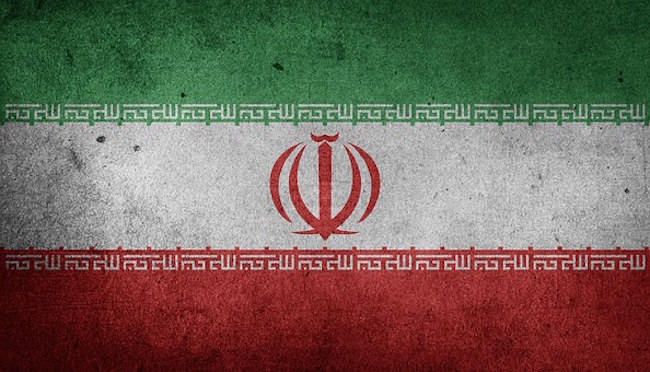Will Shake Up at IAEA Impact Iran?: Tony Cartalucci for Journal NEO
International Atomic Energy Agency (IAEA) chief Yukiya Amano’s passing has stirred up suspicion and further tensions amid US-Iranian tensions.
Amano was 72 years old and as of mid July 2019 had already begun preparing to step down due to poor health.
A July 18 AFP-JIJI article titled, “Japanese IAEA head Yukiya Amano to step down next year for health reasons: diplomatic sources,” reported:
The head of the U.N.’s nuclear watchdog, Yukiya Amano, will step down in March for health reasons, diplomatic sources said Wednesday, as the agency navigates verification of the increasingly fragile Iran nuclear deal.
However, in the wake of his death and because of his perceived opposition to US efforts to undermine the Joint Comprehensive Plan of Action (JCPOA) or “Iran Deal” – suspicions began circulating that the US or Israel – or both – may have played a role in his death.

Iran-based Tasnim News Agency in an article titled, “Sources Raise Possibility of Israeli Assassination of Amano,” would claim:
Informed sources have speculated that late chief of the International Atomic Energy Agency (IAEA) Yukiya Amano was assassinated by Israel in collaboration with the US for refusing to give in to pressures to raise new fabricated allegations against Iran’s nuclear program.
Considering the foreign policy track records of either the US or Israel – an assassination targeting members of international institutions impeding Western interests certainly sounds plausible. However no evidence has been provided to suggest Amano was assassinated.
Furthermore – his death whatever the cause will likely have little impact on the IAEA’s policies or the general state of US-Iranian tensions – for several reasons.
International Institutions are the Sum of their Member States
International institutions reflect the vector sum of sponsoring nations’ interests. As the global balance of power shifts, so too does the proportion of influence of each member state represented by these institutions. In turn the agenda of these institutions changes accordingly.
The IAEA’s criticism of Washington’s undermining of the Iran Deal reflects not the IAEA’s independent assessment – but the collective interests of member nations the IAEA supposedly represents in all matters of nuclear technology. It is no coincidence that in the halls of foreign ministries around the globe similar criticism has been leveled against Washington regarding the Iran Deal.
Nations in Europe attempting to salvage the deal have taken measures to sidestep US sanctions imposed after the US unilaterally and without justification, withdrew. Whatever influence these same nations have within the UN and IAEA has certainly filtered through and was reflected by Amano’s position over the Iran Deal prior to his death.
With this in mind, one can expect the IAEA’s position to remain relatively unchanged regardless of who becomes the institution’s next chief.
Washington’s Abuse of International Institutions: A Tired Trick
The United States and its partners have so regularly abused or even entirely sidestepped international institutions that the legitimacy and impact of these institutions have been greatly diminished.
While the IAEA may reflect a position supporting the Iran Deal’s continuation – nations of the world pragmatically sidestepping US sanctions and pursuing multilateral diplomacy is by far more important than anything the IAEA can contribute.
Should the US or Israel succeed in maneuvering to the head of the IAEA a new chief reflecting their interests it will only accelerate the IAEA’s irrelevancy further regarding the Iran Deal.
Were Amano’s death an assassination – it would have been an incredibly costly move with very little payoff in return. The fate of the Iran Deal rests not in the IAEA’s hands but rather in the hands of the deal’s remaining signatories and nations which trade with Iran.
The IAEA is not in a position to significantly influence how these nations move forward except by providing or denying the most superficial legitimacy to whatever decisions are made.
US Aggression Toward Iran Already Tramples International Law
Finally – US foreign policy toward Iran already operates beyond international law. From the terrorists it sponsors within and along Iran’s borders, to unilateral sanctions, to provocations, as well as signed and dated policy papers admitting to all of it – no amount of legitimacy lent by the IAEA under even the most ideal circumstances could conceal the criminal nature of US aggression toward Iran. Nor can the IAEA paper over the wider hegemonic ambitions US aggression toward Iran fits into.
The shake up at the IAEA will likely have a minimum impact on the future of the Iran Deal. The deal’s fate rests in the hands of Iran’s trade partners and the remaining signatories to the deal.
Only if these nations seek the deal’s success and work vigorously to circumvent US efforts to sabotage it, can it be saved. If anything, this process will shape the IAEA and its stance, rather than the other way around.
For Iran, its leadership will need to continue exercising maximum diplomatic and strategic patience under Washington’s “maximum pressure” campaign. Tehran must continue working on proving through tangible incentives why trading with a stable and unified Iran is more beneficial to interests from Europe to East Asia than Washington’s vision of a divided and destroyed Iran.
Tony Cartalucci, Bangkok-based geopolitical researcher and writer, especially for the online magazine “New Eastern Outlook”.




